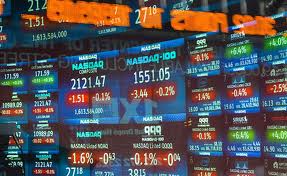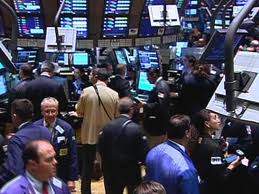 On the last day of the second quarter, the major indexes tracked global markets sharply higher today after a two-day summit in Brussels resulted in a plan to ease borrowing costs in Europe. The Dow rose 277 points, the Nasdaq gained 85, and the S&P 500 added 33. Twenty-nine of the Dow’s 30 components gained ground, with JPMorgan Chase (JPM) the sole laggard, slipping 0.42%. Volume was moderate, and advancers led decliners by about six to one on both the NYSE and the Nasdaq. The prices of Treasuries fell, while gold futures added 3.4% to $1,604.20 an ounce. Oil futures spiked 9.3% to $84.96 a barrel.
On the last day of the second quarter, the major indexes tracked global markets sharply higher today after a two-day summit in Brussels resulted in a plan to ease borrowing costs in Europe. The Dow rose 277 points, the Nasdaq gained 85, and the S&P 500 added 33. Twenty-nine of the Dow’s 30 components gained ground, with JPMorgan Chase (JPM) the sole laggard, slipping 0.42%. Volume was moderate, and advancers led decliners by about six to one on both the NYSE and the Nasdaq. The prices of Treasuries fell, while gold futures added 3.4% to $1,604.20 an ounce. Oil futures spiked 9.3% to $84.96 a barrel.
…
View original post here:



